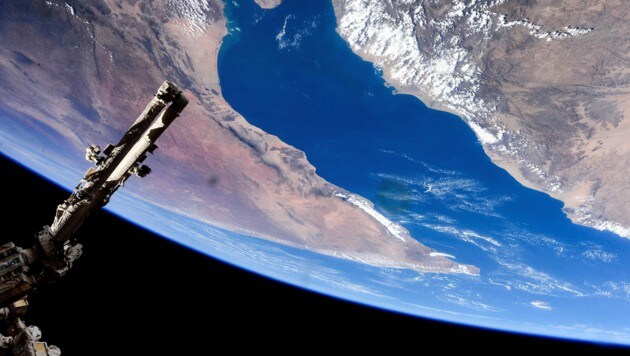20.09.2022
NASA representatives arrive at Baikonur over first cross flight aboard Soyuz
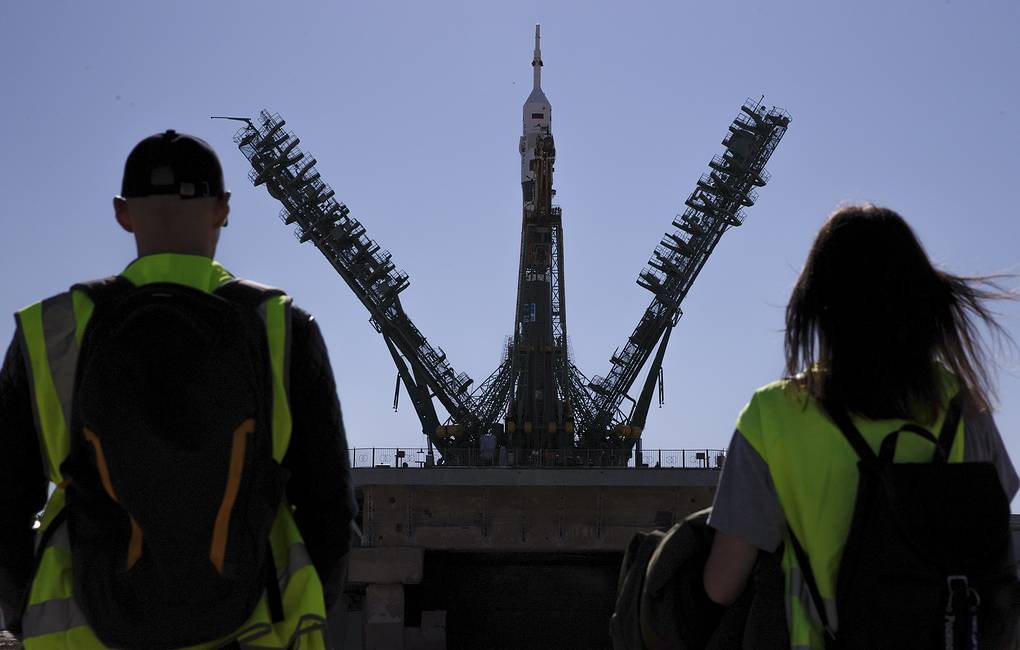
A US delegation with NASA representatives has arrived at Baikonur, ahead of the first cross flight aboard a Soyuz spacecraft, the Roscosmos press service told journalists on Sunday.
"A US delegation has arrived at Baikonur to participate in the events of the first cross flight aboard a Soyuz spacecraft - they are representatives of NASA and relatives of astronaut Frank Rubio," the press service said. The NASA delegation is led by Kenneth Bowersox, the state corporation specified.
Russia’s Soyuz-2.1a carrier rocket with the Soyuz MS-22 spacecraft was on Sunday installed on Launch Pad 31 (Vostok) of the Baikonur Space Center.
A Soyuz-2.1a rocket carrying the Soyuz MS-22 spacecraft will blast off from the Baikonur space center in Kazakhstan at 16:54 Moscow time on September 21. The spacecraft’s crew will comprise Roscosmos cosmonauts Sergey Prokopyev and Dmitry Petelin and NASA astronaut Francisco Rubio. Their space mission is to last 188 days, until March 28. The spacecraft will also carry about 120 kilograms of payload.
Quelle: TASS
+++
Soyuz-2.1a rocket installed on Baikonur launch pad
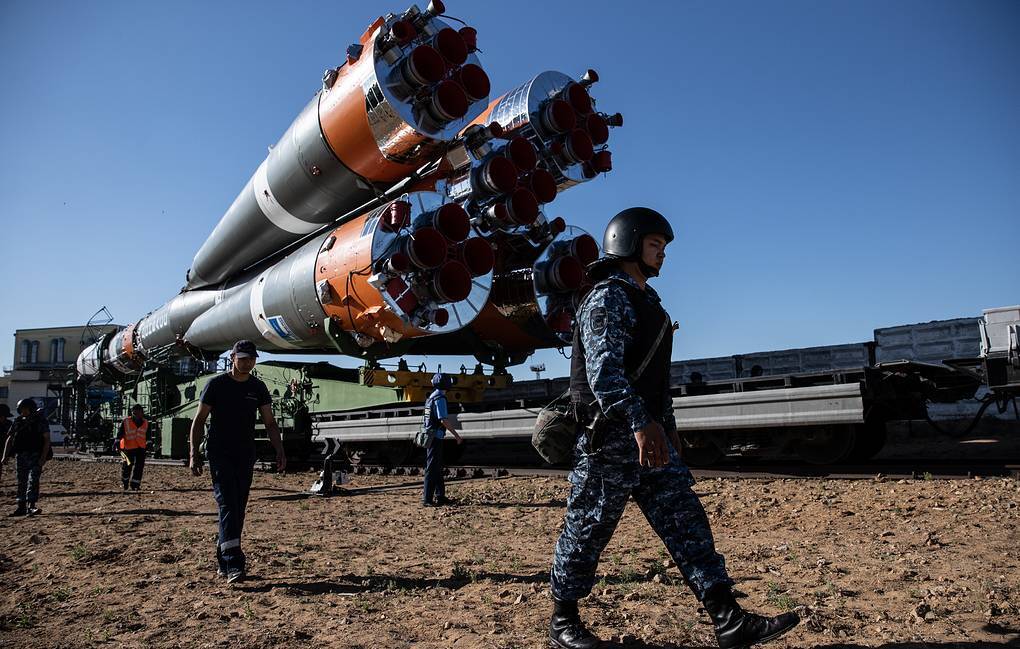
Russia’s Soyuz-2.1a carrier rocket with the Soyuz MS-22 spacecraft was installed on Launch Pad 31 (Vostok) of the Baikonur Space Center, a TASS correspondent reported from the facility.
Now the personnel is to roll up the service towers, and final launch preparations will begin.
A Soyuz-2.1a rocket carrying the Soyuz MS-22 spacecraft will blast off from the Baikonur space center in Kazakhstan at 16:54 on September 21. The spacecraft’s crew will comprise Roscosmos cosmonauts Sergey Prokopyev and Dmitry Petelin and NASA astronaut Francisco Rubio. Their space mission is to last 188 days, until March 28. The spacecraft will also carry about 120 kilograms of payload.
Quelle: TASS
----
Update: 21.09.2022
.
USA und Russland starten gemeinsamen Flug zur ISS
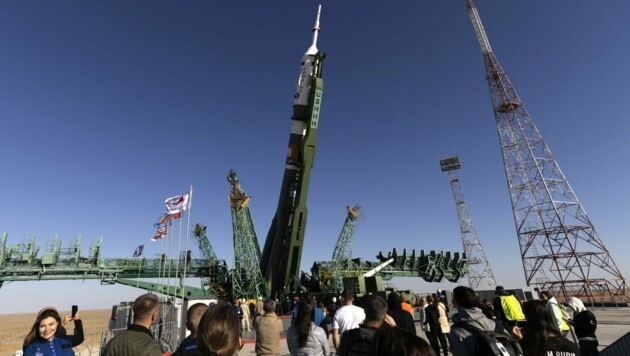
Russland und die USA fliegen zum ersten Mal seit Ausbruch des Ukraine-Kriegs wieder gemeinsam zur Internationalen Raumstation ISS. An Bord einer Sojus-Rakete sollen die beiden Kosmonauten Sergej Prokopjew und Dmitri Petelin sowie der NASA-Astronaut Frank Rubio um 15.54 Uhr MESZ vom Weltraumbahnhof Baikonur in der Steppe der Republik Kasachstan in Zentralasien starten.
Die russische Invasion in der Ukraine belastet die ohnehin schwierigen Beziehungen zwischen Moskau und Washington zusätzlich. Russland beklagt, dass die von den USA und der EU erlassenen Sanktionen im Zuge des Kriegs die Arbeit in der Raumfahrt, darunter die Produktion der auch militärisch nutzbaren Raketen, erschweren.
Die beiden Kosmonauten Prokopjew und Petelin reisen mit Rubio in einer Sojus-Raumkapsel vom Typ MS-22 in einem drei Stunden langen Flug. Sie sollen dort sechs Monate verbringen.
Wir sind gute Freunde geworden, sie kennen meine Familie, ich kenne ihre.
NASA-Astronaut Frank Rubio
„Unglaublich wichtige Mission“
Es sei eine „unglaublich wichtige Mission“, so NASA-Astronaut Frank Rubio wenige Wochen vor dem Start. Mit seinen beiden russischen Crew-Kollegen verstehe er sich sehr gut. „Wir sind gute Freunde geworden, sie kennen meine Familie, ich kenne ihre.“ Die Zusammenarbeit zwischen der NASA und Roskosmos bezeichnete Rubio als „gut und stark“ - trotz Differenzen.
„Ich denke, es ist wichtig, dass, wenn es anderswo Momente möglicher Spannungen gibt, die menschliche Raumfahrt und Erkundung eine Form der Kooperation, der Diplomatie und der Zusammenarbeit bleibt, bei der wir Gemeinsamkeiten finden und große Sachen zusammen erreichen können.“ Er freue sich auf eine Fortsetzung der Zusammenarbeit „für viele weitere Jahre“.
Russland hatte zuletzt angesichts des Konflikts mit dem Westen erklärt, nach 2024 aus der ISS auszusteigen. Ein genauer Termin wurde nicht genannt. Der deutsche Astronaut Matthias Maurer hält den angekündigten Rückzug Russlands für unwahrscheinlich. „Sie werden nicht aussteigen.“
Der neue Chef der russischen Raumfahrtbehörde Roskosmos, Juri Borissow, hatte Ende Juli gesagt: „Die Entscheidung über den Ausstieg aus dieser Station nach 2024 ist gefallen.“ Maurer zufolge hat Roskosmos mittlerweile eingelenkt. „Wir haben vernommen, dass sie weiterhin dabei sind.“ Das sei auch einleuchtend, schließlich habe Russland erst im vergangenen Jahr seinen Teil der ISS fertig ausgebaut. „Russland ist jetzt erst in der Lage, dort richtig Forschung zu betreiben.“
Zur 68. ISS-Mission sagte Kosmonaut Prokopjew vor dem Start: „Das Programm ist ziemlich voll - neben dem schnellen Andocken sind fünf Ausstiege ins Weltall geplant.“ Zudem seien 48 Experimente vorgesehen, darunter die Arbeit mit einem 3D-Drucker in der Schwerelosigkeit.
Fakten
Allein sein werden die drei nicht auf der ISS in rund 400 Kilometern Höhe über der Erde. An Bord sind bereits der Kommandant der 67. Expedition, Oleg Artemjew, die Kosmonauten Denis Matwejew und Sergej Korssakow sowie die NASA-Astronauten Bob Hines, Kjell Lindgren, Jessica Watkins und die Italienerin Samantha Cristoforetti von der europäischen Raumfahrtbehörde ESA.
Während es für Prokopjew der zweite Flug ins Weltall ist, fliegen Petelin und Rubio zum ersten Mal. Das Schwerste werde für ihn persönlich die lange Trennung von seiner Frau und seinen vier Kindern sein, sagte der 1975 in Los Angeles geborene Astronaut. Ein paar Familienfotos werde er mit zur ISS nehmen.
Quelle: Kronen Zeitung
+++
Expedition 68 Crew Launches to Space Station
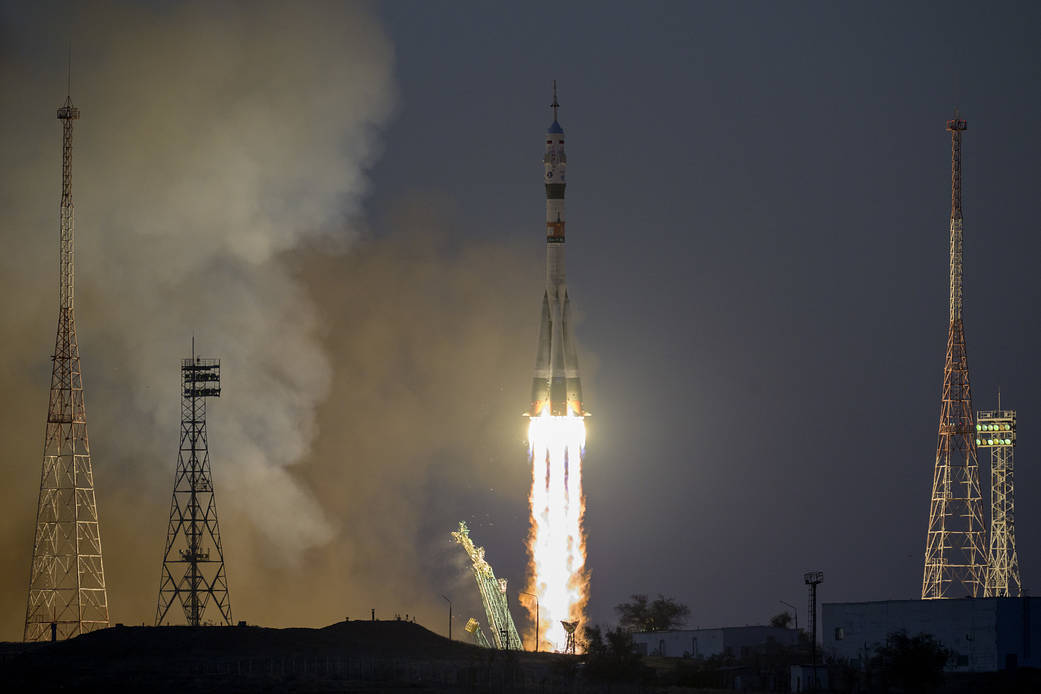
The Soyuz MS-22 rocket launches to the International Space Station with Expedition 68 astronaut Frank Rubio of NASA, and cosmonauts Sergey Prokopyev and Dmitri Petelin of Roscosmos onboard, Wednesday, Sept. 21, 2022, from the Baikonur Cosmodrome in Kazakhstan. Rubio, Prokopyev, and Petelin will spend approximately six months on the orbital complex, returning to Earth in March 2023.
Photo: NASA/Bill Ingalls
Quelle: NASA
+++
Note: Actually, I wanted to bring more screenshots from the start of Soyuz-MS22, but due to the current inhumane politics of Russia I refrain. How could mankind be more successful together if not individuals place themselves above the fate of many and obstruct the future. Young people are dying for "old man's dreams" which should actually be the future of the country and their lives and professional careers are being stolen from them. And the bitter thing about it is that I don't have to write it in 1800, but in 2022.
CENAP

